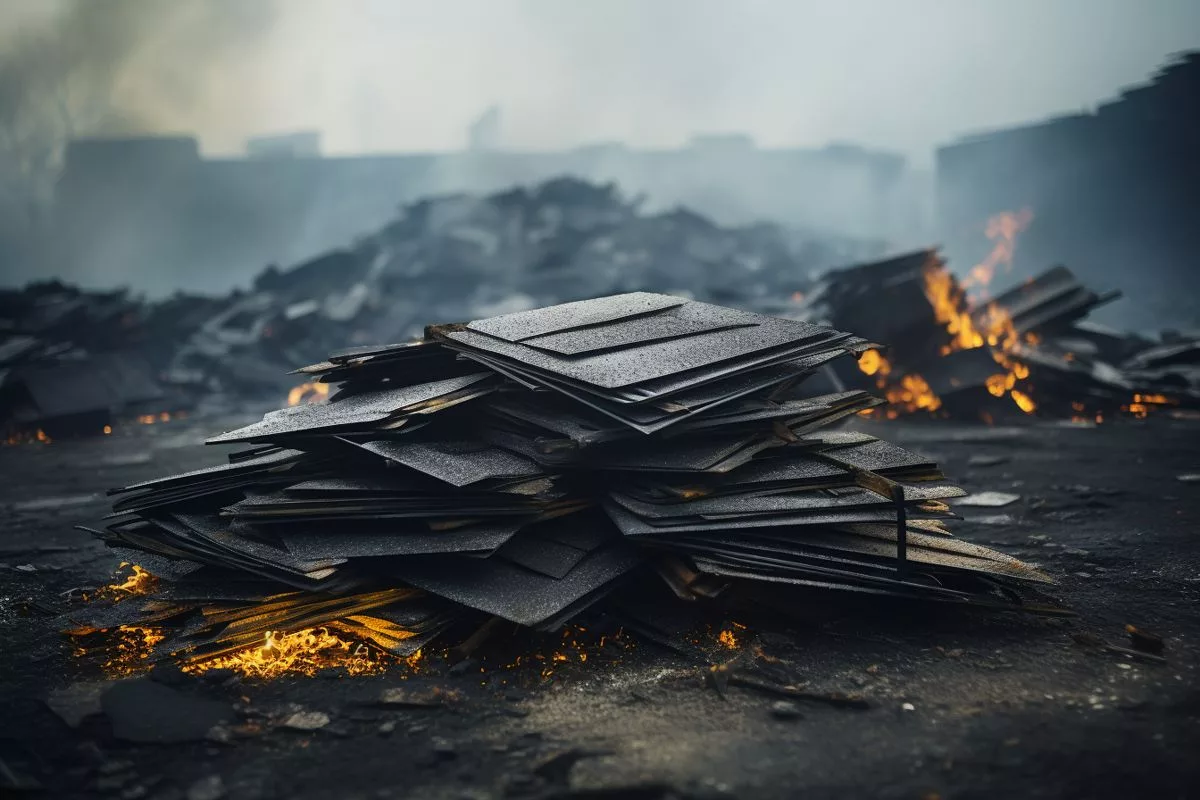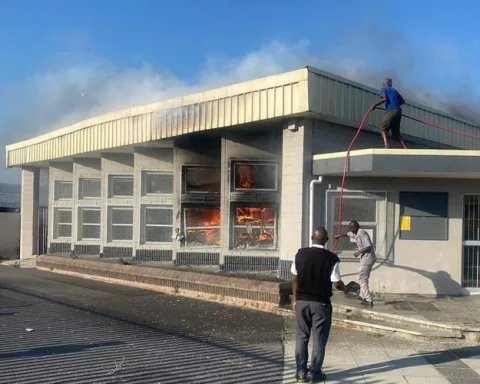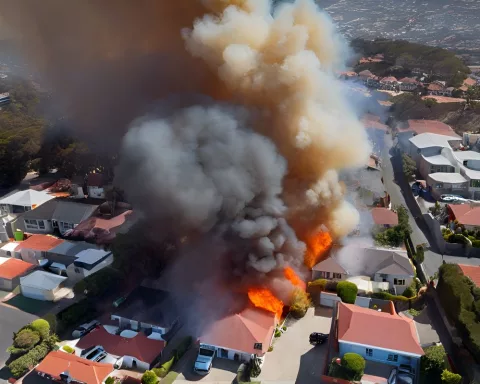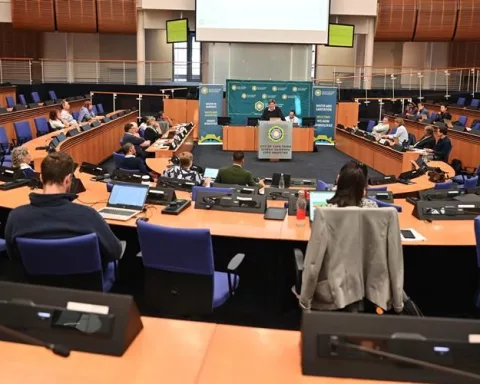The close-knit community of Blowy informal settlement in Khayelitsha, Cape Town, has shown remarkable resilience and determination to rebuild their lives and homes after a devastating fire left over 500 individuals homeless and hungry. The community is highlighting the need for innovative urban planning strategies to prevent future tragedies and urging the City of Cape Town to address overcrowding in informal settlements. Despite the challenges, NGOs and the community’s unwavering spirit are providing support and hope for a brighter future.
How did Khayelitsha Community respond to a devastating fire?
The Blowy informal settlement in Khayelitsha was hit by a devastating fire, leaving over 500 individuals homeless and hungry. The community has been working to rebuild their lives and homes with the help of NGOs, while also highlighting the need for innovative urban planning strategies to prevent future tragedies. Despite the challenges, the community has shown remarkable resilience and determination to create a better future for themselves.
Overcoming the Flames and Rebuilding Lives
In the heart of Khayelitsha, Cape Town, more than 500 individuals had their lives transformed when a devastating fire swept through the Blowy informal settlement on a tragic Sunday night. Amidst the wreckage and remnants of their former homes, this close-knit community now faces the daunting task of rebuilding their lives from the ashes.
Two individuals tragically lost their lives during the fire, leaving numerous others homeless and heartbroken. Andiswa Matiso, a mother of three, recounted her struggles as she and her children sleep outdoors in the cold to protect the plot where her shack once stood. Like many others, Matiso lacks the resources to rebuild her home at the moment, so she remains vigilant in safeguarding her family’s future.
The fire’s consequences go beyond the loss of homes; residents also confront the harsh reality of hunger and a lack of basic necessities. Ntaeleng Gejosengoe, another victim of the fire, emphasized the community’s pressing need for donations of essential toiletries, clothes, and food. Items such as pads, diapers, and baby food are highly sought after as families grapple with the disaster’s aftermath.
Addressing Overcrowding and Urban Planning Challenges
The fire has also highlighted the critical issue of overcrowding in informal settlements. Gejosengoe and other victims are now urging the City of Cape Town to concentrate on de-densifying Blowy to avert similar tragedies in the future. The fire’s devastation has exposed the vulnerability of these communities, underlining the necessity for inventive urban planning and development approaches.
Nevertheless, the community’s resolve to rebuild and progress has surfaced in the face of adversity. Nkululeko Mantyi, a leader of the South African National Civic Organization (SANCO), emphasized their reliance on donations to feed the majority of fire victims. Many of those affected by the fire rely on government grants, which are currently unattainable due to the loss of their SASSA cards in the blaze.
Despite the grim circumstances, the resilience of the Blowy community is evident. As reported by GroundUp, some shack dwellers have already started rebuilding their homes using burnt zinc sheets. While many of the plots where shacks once stood remain vacant, the community maintains hope and determination to overcome the tragedy.
Support from NGOs and the Community’s Unwavering Spirit
As the Blowy community copes with the fire’s aftermath, several NGOs have stepped in to offer much-needed humanitarian relief. Charlotte Powell, spokesperson for the City’s Disaster Risk Management Centre, confirmed that organizations such as Gift of the Givers, Heal our Land, Islamic Relief, and Al Imdaad have been on site to assist affected residents. Some are staying with friends or relatives, while others find temporary shelter at a nearby church.
The story of the Blowy informal settlement serves as a poignant reminder of the vulnerability and challenges faced by those living in informal settlements. However, it also stands as a testament to the resilience, strength, and unity of the human spirit. Amidst the ashes, the community’s determination to rebuild and create a better future is genuinely inspiring.
As Khayelitsha’s residents continue on their path to recovery, support from NGOs, generous donations, and the unwavering determination of the community itself will undoubtedly help them rebuild, one brick at a time. In the face of devastation, the community’s enduring spirit and unity will ensure that they rise from the ashes, stronger and more determined than ever.
The Blowy fire has exposed the urgent need for innovative urban planning strategies, comprehensive development policies, and de-densification efforts to address the challenges faced by informal settlements. As the community of Khayelitsha rebuilds, it’s crucial for both the City of Cape Town and broader society to unite and work towards creating a safer and more sustainable environment for all residents.
1. What is the Blowy informal settlement in Khayelitsha, Cape Town, and what happened to it?
The Blowy informal settlement in Khayelitsha, Cape Town, is a close-knit community that was hit by a devastating fire, leaving over 500 individuals homeless and hungry.
2. How is the Khayelitsha community responding to the fire’s aftermath?
The Khayelitsha community is working to rebuild their lives and homes with the help of NGOs, while also highlighting the need for innovative urban planning strategies to prevent future tragedies. Despite the challenges, the community has shown remarkable resilience and determination to create a better future for themselves.
3. What are some of the challenges faced by residents of the Blowy informal settlement after the fire?
Residents of the Blowy informal settlement are facing the loss of their homes, hunger, and a lack of basic necessities like toiletries, clothes, and food.
4. What is the community’s pressing need for donations?
The community’s pressing need for donations includes essential toiletries, clothes, and food. Items such as pads, diapers, and baby food are highly sought after as families grapple with the disaster’s aftermath.
5. What is the critical issue highlighted by the fire in the Blowy informal settlement?
The fire has highlighted the critical issue of overcrowding in informal settlements. Victims of the fire are urging the City of Cape Town to concentrate on de-densifying Blowy to avert similar tragedies in the future.
6. What is the role of NGOs in the aftermath of the fire?
Several NGOs have stepped in to offer much-needed humanitarian relief, including Gift of the Givers, Heal our Land, Islamic Relief, and Al Imdaad. They are providing shelter, food, and other necessities to affected residents.
7. What is the community’s response to the fire’s aftermath?
The community’s response to the fire’s aftermath has been one of resilience, strength, and unity. Some shack dwellers have already started rebuilding their homes using burnt zinc sheets. While many of the plots where shacks once stood remain vacant, the community maintains hope and determination to overcome the tragedy.
8. What is the urgent need exposed by the Blowy fire?
The Blowy fire has exposed the urgent need for innovative urban planning strategies, comprehensive development policies, and de-densification efforts to address the challenges faced by informal settlements.












